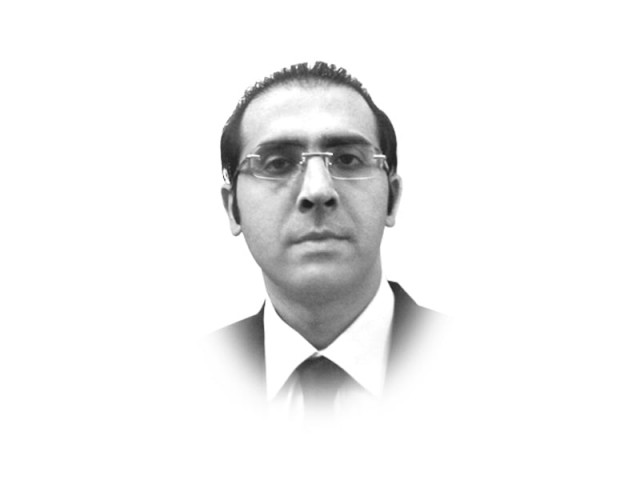Not learning from history
I am in no doubt SC's statement about emergency was in good faith, prompted by increasing frustration on Balochistan.

One is entitled to be surprised for another reason. My lord has had some prior experience with a previous “emergency” and while we do not know his exact position on the matter now, however, he did not seem particularly thrilled about it back then. In a less reverent culture with more relaxed contempt laws, some people might have gone so far as to term it a “threat” to an elected government. Another minor objection of a technical nature could be that the Supreme Court does not possess any power to impose an emergency of any sort. However, we already know the answer to such petty nitpicking objections, namely various permutations of “desperate times call for desperate measures etc.”.
I am in no doubt that the Supreme Court’s statement about a potential emergency was made in good faith and was prompted by the increasing frustration on the Balochistan situation. Yet, I humbly submit that the rage is largely misdirected. The federal and provincial governments have failed to the extent of not curtailing the role of the intelligence agencies, the army and the FC in the province, but to attribute direct culpability for abduction and bullet-riddled, mutilated bodies is myopic. As far as the court is concerned, my lords I hope would have noticed a marked difference between civilian elected governments and the gallant officers of the armed forces. Compelling the attendance of the IG FC has been considerably harder than making the prime minister of the country appear in court. And one might add that the Supreme Court has also been more restrained in the case of the personnel of the armed forces.
Let me be slightly plain on the matter. The Supreme Court does not like the elected government/s and is considerably fonder of the armed forces. I do not think I expose myself to the possibility of contempt here, as I do not in any way allege personal bias but rather an institutional leaning. The Asghar Khan petition should have seen summons being issued to the present DG ISI to come forth and explain if a political cell of the ISI is still operative and even easier should have been acting on the confessional affidavits of General (retd) Mirza Aslam Beg and Lt-General (retd) Asad Durrani. The follies of the present federal and provincial governments are hard to defend and in any case should not be defended, yet to hear the Chief Justice warning the government in inevitable, rather apocalyptic tones with emergency should not be allowed to go unexamined or unchallenged. We have heard the same arguments before and the fact that the maker of the arguments is changed this time do not in any way make them kosher or worthy of uncritical deference.
The prime minister’s contempt of court ordeal, it seems, is not ending anytime very soon. It can be justifiably argued that the NA speaker has little discretion in the matter and should only inspect if there is a conviction for “bringing the court into ridicule”. Perhaps, it is best the prime minister resigns. Nevertheless, it is also of some significance that the article of the Constitution which mandates this disqualification is revisited. Article 63 (1) (g), in addition to bringing the judiciary and armed forces in ridicule, also enumerates other grounds, including “propagating any opinion, or acting in any manner, prejudicial to the ideology of Pakistan, or the sovereignty, integrity or security of Pakistan, or morality”. This right here is a model for an Orwellian backward, repressive and silent state. Article 62 enumerates the qualification for membership of parliament, which are as specific as “good character and is not commonly known as one who violates Islamic Injunctions”, “adequate knowledge of Islamic teachings and practices obligatory duties prescribed by Islam as well as abstains from major sins”, “sagacious, righteous and non-profligate, honest and ameen.” This would have been laughable had it not been tragic. The blindingly obvious problem of how these determinations can humanely be made is too strenuous as to mandate any detailed elaboration. Also, no marks for guessing whose bright idea this was, of course it was Ziaul Haq’s. The disturbing part is the salience attached to the delusional visions of the dead theocrat by the subsequent governments, including the present government and now the Supreme Court. I think it is overdue that now we make a constitutional amendment ridding ourselves of Ziaul Haq.
Also, one might cautiously add that ominous warnings of “emergency” do bring parliament into ridicule, admittedly parliament does not have and should have the same immunity as the judiciary, yet let us not lose all sense of proportion. And a gentle reminder to my lords that elected governments from whatever party are more likely to appear in court than the khakis, but my lords already know that. The temporary and reluctant alliance between the courts and the khakis reminds me of one of the most amusing anecdotes from Ronald Reagan’s presidency when he seriously told Mikhail Gorbachev that in case of an alien/Martian invasion of the world they would put the cold war on hold and put up a united front. An external invasion is the least of our concerns, my lords.
Published in The Express Tribune, May 27th, 2012.















COMMENTS
Comments are moderated and generally will be posted if they are on-topic and not abusive.
For more information, please see our Comments FAQ